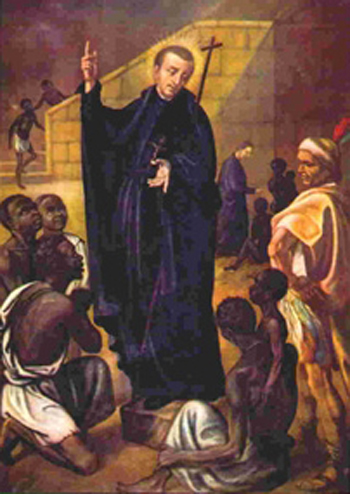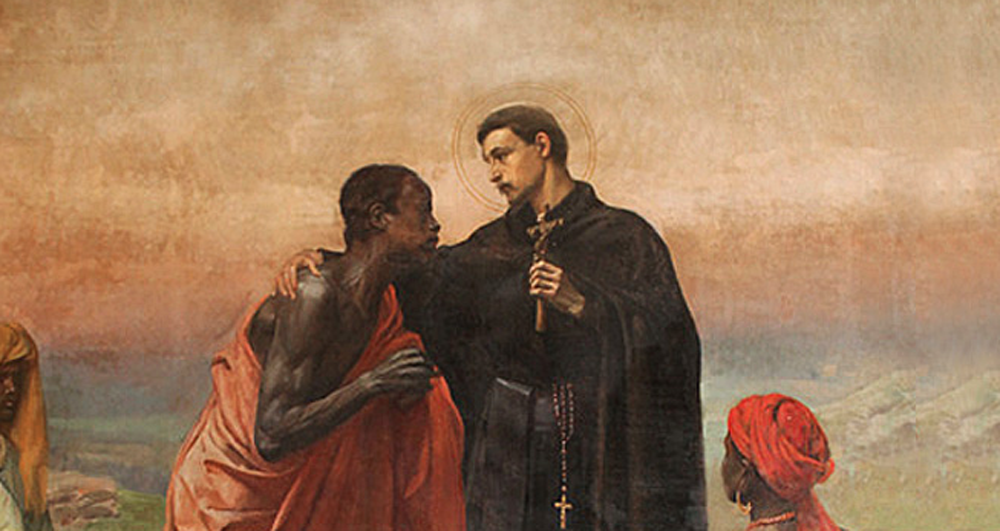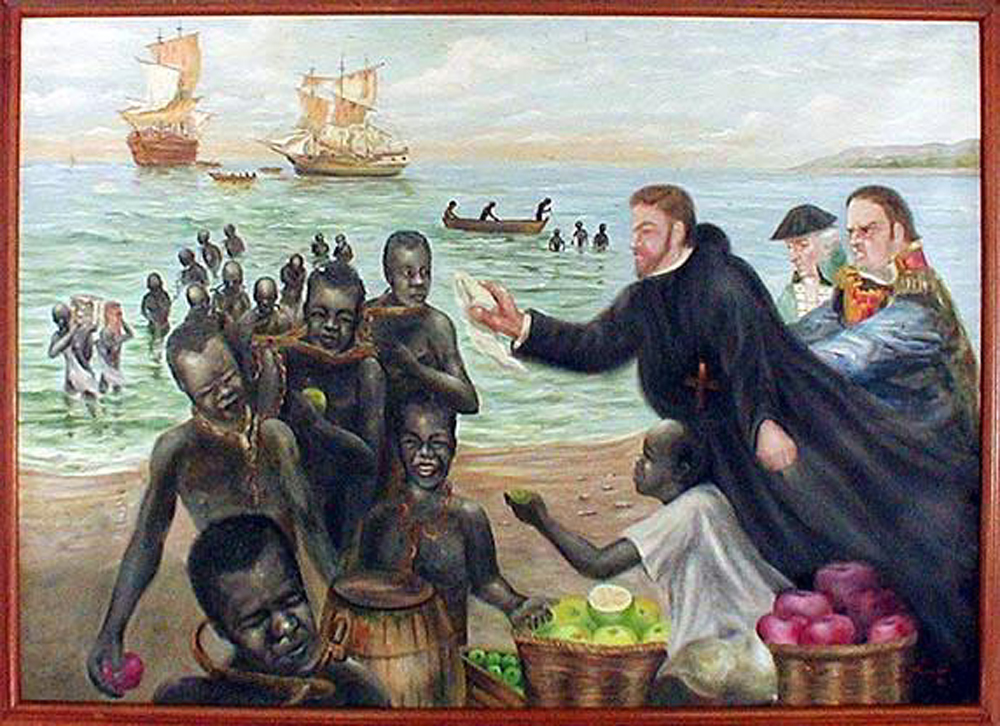By Mark Ellis –

Peter Claver was born into a prosperous farming family near Barcelona, 70 years after King Ferdinand authorized the transport of slaves to Spanish colonies in New Spain.
As a student at the University of Barcelona, he wrote these words in his personal journal: “I must dedicate myself to the service of God until death, on the understanding that I am like a slave.”
Later, studying philosophy at Palma, Mallorca, he received a prophecy that he would spend his life in service in the colonies of New Spain.
He answered a call to minister in Cartagena, Granada in 1610. After he arrived, he was deeply distressed by the harsh treatment and living conditions of the black slaves who were brought from Africa.
Cartagena was a slave-trading center and 10,000 slaves flowed into the port annually. The conditions on the ships crossing from West Africa were so brutal that one-third died during the voyages.
Claver personally boarded the slave ships as soon as they arrived at the wharf to tend to the sick and dying.
Early in his ministry, he noticed two blacks, “nearer death than life, already cold, whose pulse could scarcely be detected.”
He put some hot coals on a clay tile between the dying men to warm them. “Into this fire we tossed aromatics,” he wrote later. Using his cloak, he gave them a smoke treatment, “by which they seemed to recover their warmth and the breath of life. The joy in their eyes as they looked at us was something to see.”
Claver seldom preached, but became the hands and feet of Jesus as he ministered. “We made every effort to encourage them with friendly gestures and displayed in their presence the emotions which somehow naturally tend to hearten the sick,” he noted.
After the slaves left the ship they were confined in nearby yards to be viewed by potential buyers. During their captivity, Claver brought them medicine, food, brandy, lemons and tobacco.
During the season when ships did not arrive, he traveled the country, visiting slaves on the plantations, offering them spiritual guidance and consolation. During his travels he refused to stay with the planters and overseers, preferring to spend the night in the slave quarters.
He also ministered to the sick in Cartagena’s hospitals and to prisoners on death row.

At the end of his life he was too sick to leave his room. He lingered in a weakened state for four years, mostly neglected, physically abused, and starved by a former slave hired to care for him. He never grumbled about his treatment, accepting it as fair punishment for his sins.
During his 40 years of ministry it is estimated that he personally baptized 300,000 slaves, according to Wikipedia.
He was canonized in 1888 and became known as the Apostle of Cartagena.




